'I wasn't ready to die': Motorcycle crash victim's battle to beat road trauma
When you’re dying, you don’t see your life flash before your eyes, instead you see everything worth fighting for, says Mark Daniels.
Mr Daniels was 23-years-old and serving in the Australian Navy, when his life changed forever.
He joined the Navy at 19, leaving behind his family in Queensland to move to Perth and in 2015 he shipped out for a four-month deployment.
On returning to Perth in December 2015, he was spending the day with his brother and father on board the ship to celebrate the last day at work. Later that day, Mr Daniels decided to visit a friend he hadn’t seen in months.
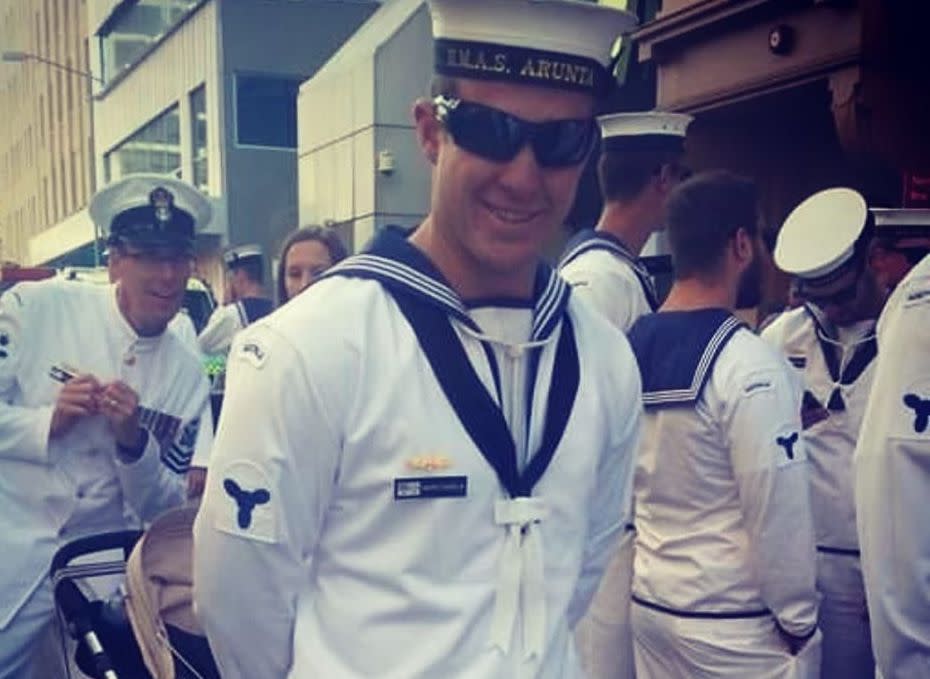
He jumped on his motorbike, to catch up with his friend, suiting up in his protective gear.
About a minute away from his friend’s place, a distracted driver struck Mr Daniels, T-boning him and throwing him to the road.
“It’s like someone has stolen your identity,” Mr Daniels told Yahoo News Australia.
“You wake up, your legs gone, and my first words were ‘Oh, crap, how do I do this?”
‘I didn’t want to be a burden’
The crash left Mr Daniels with a broken neck, a broken hand, a ruptured kidney, punctured lung, a split femoral artery and 11 broken ribs.
The surgeons decided to amputate Mr Daniels leg below his left knee on December 23, years later he decided to amputate above the knee.
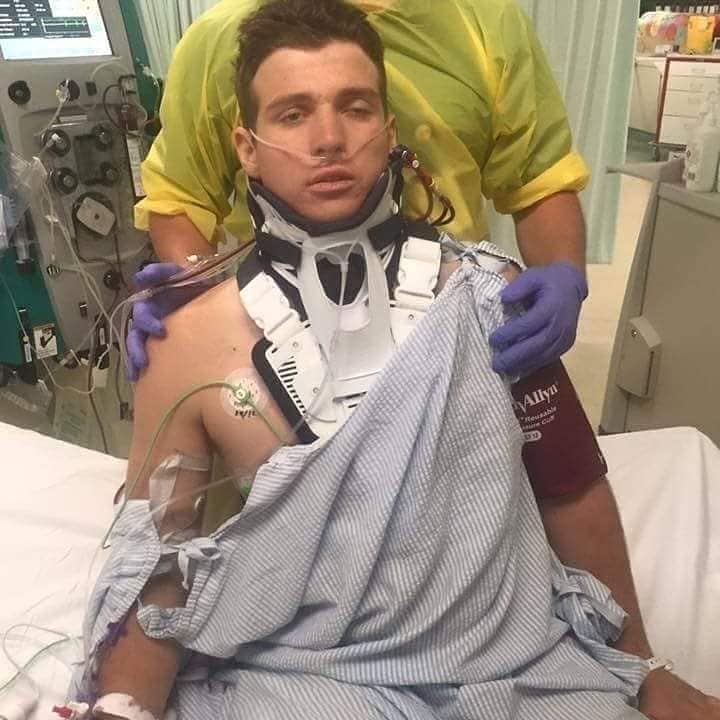
“I didn’t want to be alive, I didn’t want to be a burden on my family or society,” he said, saying he had suicidal thoughts on waking up in hospital, eventually trying to take his own life, despite fighting so hard to make it to hospital after the crash.
“Everyone says when you’re dying your life flashes before you. It doesn’t, it’s every reason you want to live, every regret you have, every bad decision you’ve ever made you wished you had made different.
“I promised myself I wasn’t ready to die,” he says, reflecting on that night where he was bleeding out on the side of the road.
“I guess as much as I didn’t want to die, I accepted I was dying.”
To this day, Mr Daniels still battles with PTSD and suicidal thoughts, he says you never really get over it, rather you learn to deal with it.
He says you try not to become the victim of your own circumstances, and elect to surround yourself with people to get through the hardship.
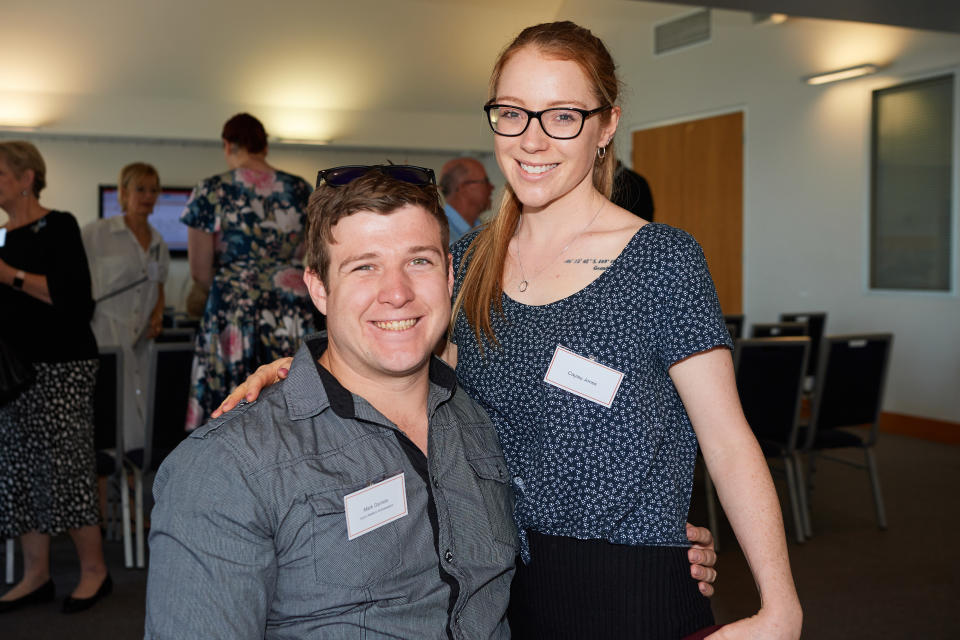
But ultimately, you get tougher.
“Things that would ruin a normal person, you deal with a lot better,” he says.
Mr Daniels is now the ambassador for Road Trauma Support WA, although he didn’t use the group himself, he says they offer an “amazing” service.
“My mum took it probably the hardest, she was dealing with that much built up anger,” Mr Daniels explains.
“I guess when we think of road trauma, we don’t really think of the families. Everyone would say ‘You’re the lucky one, you survived, you’re to lucky to survive’.
“But, they weren’t the ones in the hospital bed, next to me.”
It took a toll of Mr Daniels’ mother, who stayed with him at the hospital, while he was handcuffed to the bed, to stop him from harming himself, she was angry at the driver, who had ruined her son’s life.
A police officer referred Mr Daniels’ mother to Road Trauma Support WA, the group not only aids road trauma victims, but also their families and first responders.
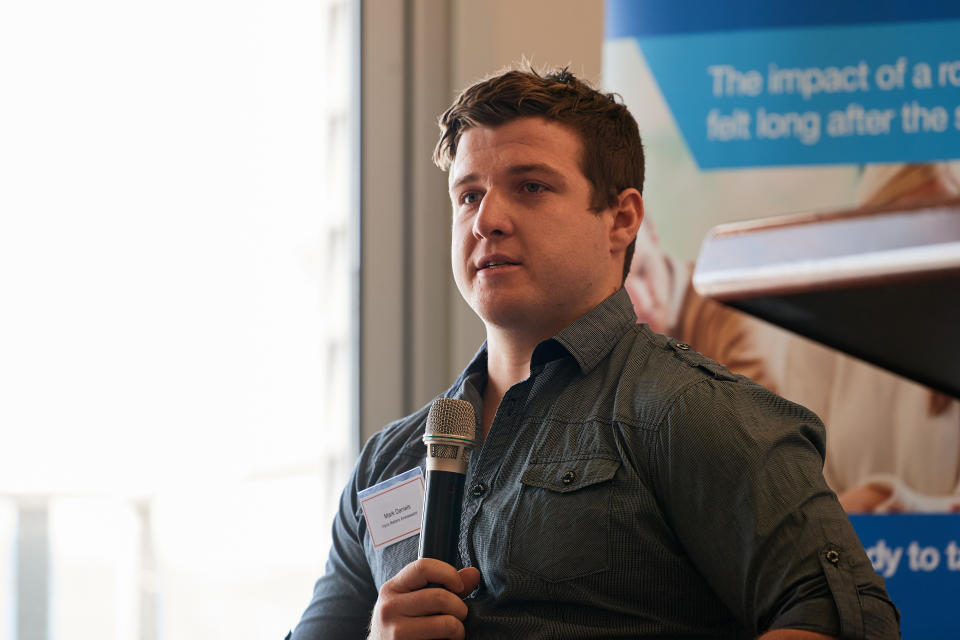
One thing that helped Mr Daniels’ recovery was exercise, and since the crash he has gone on to compete as a professional athlete.
Mr Daniels is trying out for the 2020 Invictus Games, having already competed in the 2018 Invictus Games in Sydney, for wheelchair rugby where his team won gold, sitting volleyball and at indoor rowing where he won a bronze medal.
“For the rehabilitation initially I had it in my head I was going to be running within a month, walking within a week,” Mr Daniels said.
“What I didn’t realise was the extent of my injuries, which was the biggest setback.”
Six months following the crash, Mr Daniels got a prosthetic leg, and soon learned walking in one was not easy, he had to learn how to walk on it, balance, step over things and control it.
“Everyone just thinks when you get a prosthetic leg you just put it on and off you go.
“It’s not, it’s painful.”
Now, he has six prosthetic legs, which comes to the total of $440,000. Each leg serves a different purpose for Mark Daniels.
“They last between three to six years, so basically you’re getting a house every three to six years,” he explains.
“Which is something people don’t really talk about. All my friends go on holidays and travel and I make the decision to get the legs I need.”
Mr Daniels appreciates how lucky he is to have the prosthetic legs, he was able to secure some funding from the Navy, and there has been some crowd funding which enabled him to buy the legs he needs, whereas there are people around the country who are not able to
Once he started getting more physical in his life, Mr Daniels started looking at what he could do, looking at gym and fitness.
“It really helped me. The days I was depressed and suicidal, I would find this outlet in the gym and people on the street looked at me like I was a freak because I’m covered in scars.
“When you go to the gym people are looking at you like you’re a freak because you’re lifting more than them on one leg.”
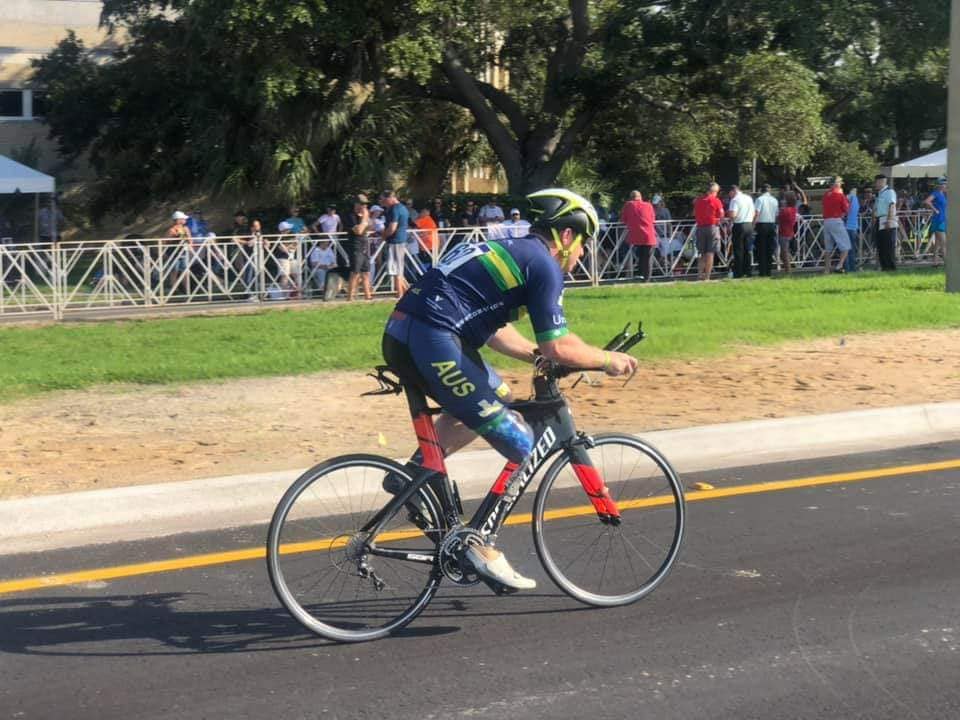
The consequences of actions
By complete accident, Mr Daniels fell into motivational speaking and now speaks in front of thousands of people and students.
When he speaks to the masses, he speaks of the consequences of actions.
“Imagine if you killed your girlfriend, your boyfriend, your mum or dad, the person closest to you. You then have to spend your life living with that.
“This is what people need to think about is, it’s someone else’s life that you are responsible for when you’re driving that car.”
“You can send a text, change the song on the radio, turn around to yell at the kids in the backseat... or you can ruin a life, change a life forever or take a life,” Mr Daniels wrote on his Facebook page, Mark Daniels Motivation.
“Someone’s inattention for just 10 seconds changed my life forever. Yes, I have achieved so much in the last four years and had so many great opportunities that I wouldn’t of received with two legs but there’s also been so much pain and hardship.”
The recovery process is ongoing for Mr Daniels, at the end of 2019 the had to undergo another surgery on his leg.
‘I just had this gut feeling’: Devastating moment mum discovers 20-year-old’s crash death
'It’s so dangerous': The biggest hazard on the road scaring paramedics
'I still blame myself': The fatal mistake that killed woman's husband and daughter
“Life doesn’t mend after something like this,” he says.
“A lot of the time we focus on the negatives. But at the end of the day, if you have a support network of people, that’s the most crucial thing, and you’re able to return back to a normal life.”
Mr Daniels says he won’t let what happened to him define him, and he strives to lead a “normal life”.
Right now, it is pretty tough for Mr Daniels, who is not able to walk yet following the surgery and has recently been medically discharged from the Navy.
But he has a supportive partner Cayley who supports him through everything.
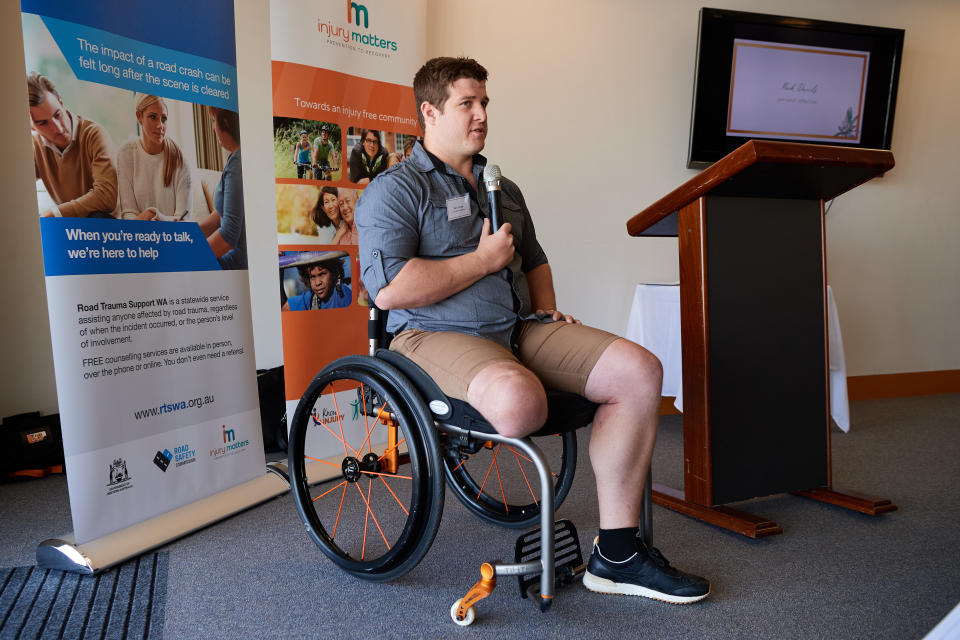
“No matter how stupid the idea is,” he laughs adding he is now closer than ever with his family.
This year Mr Daniels is launching a program called the Warrior Wellness Project which will partner with RSLWA to empower veterans in Western Australia.
But his main focus for the year is learning to love himself and be happy with the life he has now.
“I spent so long fighting the term and being disabled, that I’ve killed my body trying to prove I am just as good as an able bodied person,” he explains, saying in 2020 he is going to focus on his mental recovery.
If you or someone you know has been affected by road trauma, contact Road Trauma Support WA on 1300 004 814 or visit www.rtswa.org.au.
Do you have a story tip? Email: newsroomau@yahoonews.com.
You can also follow us on Facebook, Instagram and Twitter and download the Yahoo News app from the App Store or Google Play.




